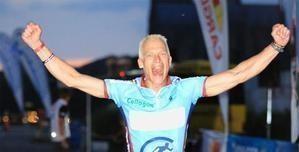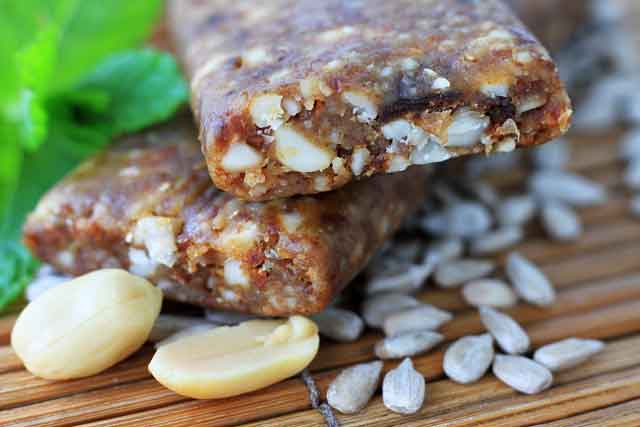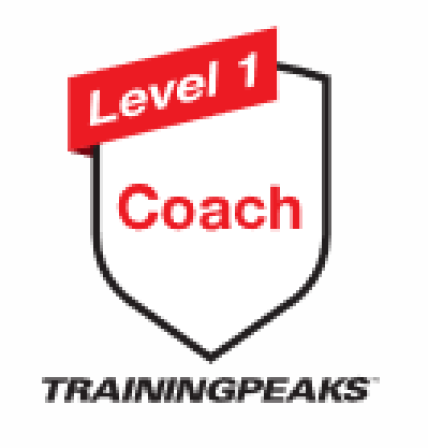Triathlon Nutrition during a race
Nutrition before and during the race can make the difference between success and failure in triathlon. The goal before the race is to properly recharge your glycogen stores so that you can perform at your full potential and not have any unpleasant digestive problems with the right Triathlon Nutrition. Due to the different competition distances in triathlon, load periods range from 20 min to +8 hours, with different requirements.
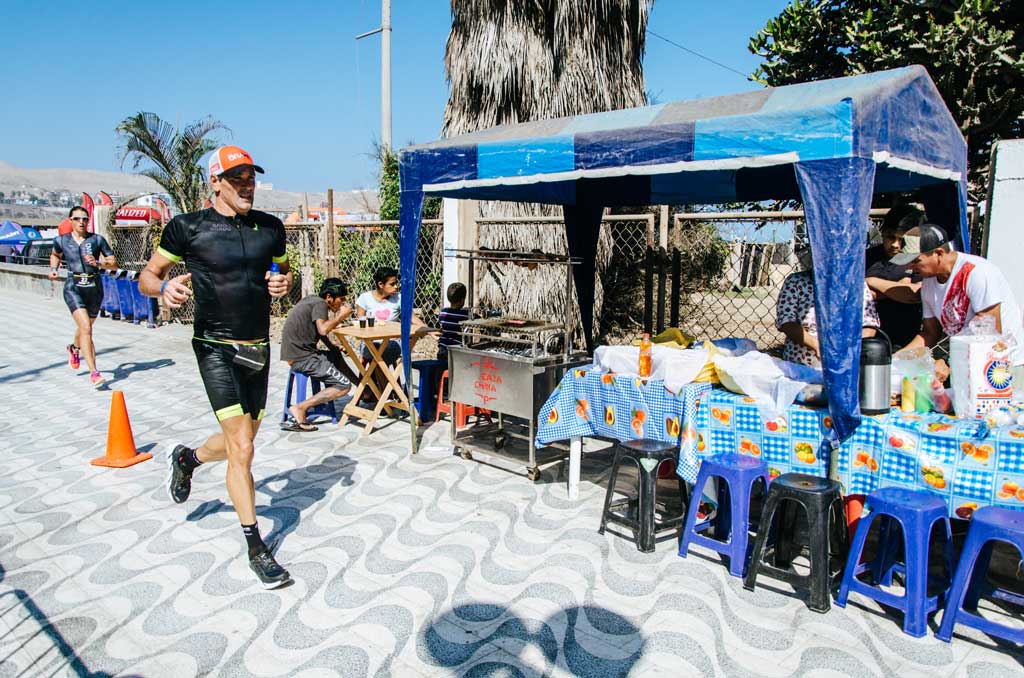 The amount of energy stored in the muscles and liver carbohydrates that your body will have at the beginning of the competition is only enough for a load duration of about 60-90 minutes. For exertion beyond that, such as in an Ironman or a bike race, you will be necessarily dependent on an exogenous (from outside) supply of energy. For a meaningful explanation and preparation of the topic of nutrition in triathlon, we differentiate in the following, the days before the race and the nutrition during the competition. Afterwards, we will give you some tips for the nutrition after the race.
The amount of energy stored in the muscles and liver carbohydrates that your body will have at the beginning of the competition is only enough for a load duration of about 60-90 minutes. For exertion beyond that, such as in an Ironman or a bike race, you will be necessarily dependent on an exogenous (from outside) supply of energy. For a meaningful explanation and preparation of the topic of nutrition in triathlon, we differentiate in the following, the days before the race and the nutrition during the competition. Afterwards, we will give you some tips for the nutrition after the race.
The nutrition before triathlon:
Carbo-loading is an old and widely used strategy used in endurance sports.
You have probably heard that it involves filling the glycogen stores in the muscles and liver to the maximum.
Why? Think of your glycogen stores as your fuel. You're about to embark on a big journey and you're making sure you have enough fuel/energy in the tank. The more fuel you have, the longer you'll last until your next fuel stop.
In order to ensure sufficient and effective carbohydrate intake before the race, there are a few important points to keep in mind regarding nutrition:
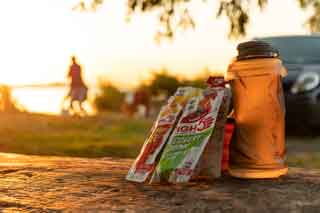
1) Start early before the triathlon.
You should start eating enough carbohydrates in the last 3-4 days before the triathlon. Increase this percentage in your diet, for example by adding an extra portion of carbohydrates (toast, rice, potatoes, pasta) to every meal. Aim for about 8-12 grams per kilogram of body weight of carbohydrates to fully replenish glycogen stores. This would mean an intake of 560-840g of carbohydrates for a 70kg triathlete.
|
Triathlon Coaching - individual and highly effective! |
2) Many helps a lot?
According to the motto "Always put it in" ? No.
Note that if you eat or drink too many carbohydrates in preparation, they can be counterproductive. Especially if the proportion of carbohydrates in your previous diet has not been so high, you should gradually increase the amount (even in the training phases before now and then). Otherwise, the unusual amount for the body could lead to gastrointestinal problems or too much weight gain.
3) Reduce fat-rich and high-fiber foods.
Eating more carbohydrates means that the majority of your daily calories come from carbohydrates. Foods high in fat, protein and fiber, which should be included in a normal balanced diet, should now be greatly reduced. Especially if you have a sensitive stomach, you should greatly reduce or avoid fiber-rich foods such as fruits and vegetables, legumes, and whole grains.
4) Reduce your workout
Less training and more calories in your diet or drinking will naturally lead to fuller glycogen stores. If you keep going full throttle in your workouts, it will tap into your glycogen stores every time.
5) The race day / morning > Before the start.
The pre-race energy intake is important for morning races, as it can restore liver glycogen depleted overnight and provide a continuous supply of carbohydrates from the gut during the first part of the race. The characteristics of, for example, an Ironman, individual preferences for eating and drinking, and tolerance will determine the amount, type, and timing of food intake prior to the race; this should be well practiced to develop an individualized record.
In the last 1-4 hours before the start of the competition, you should consume 1-4g of carbohydrates per kilogram of body weight. As an example, a 70kg athlete:in would consume between 70-280gr of carbohydrates 1-4 hours before the start of the competition. Basically, for a long distance race, it would make more sense to start at the lower end of the range (4g), with enough distance to the start. While for a sprint distance and a tight time window of 1.5h, it would make more sense to start at the lower end of the range. However, you should have at least 1h between breakfast and the start of the race to give the body time to digest and reduce the risk of gastrointestinal discomfort, nausea or bloating in triathlon.
Note:
Increasing carbohydrate intake within the diet and the resulting increase in calories can lead to weight gain. This is due to the fact that 1 gram of glycogen is stored in the body along with at least 3 grams of water, so it is a perfectly normal response. Don't let this upset you. On the contrary, you can be sure to go to the start with well-filled stores.
Nutrition during the race:
Depending on the duration of the race, we recommend adding carbohydrates, fluids, and electrolytes during the race. With the wide range of sports nutrition products available, it is recommended to test different suppliers and products for taste and tolerance. Competition duration: * From an intake of 60g of carbohydrates per hour, you should combine different sugar sources to maximize the intake of higher amounts of carbohydrates. A classic mix in practice is glucose and fructose, in a 2:1 ratio when drinking in Ironman or middle distance events. From a longer race duration of more than 2 hours, a higher carbohydrate intake of 60 to 100 grams per hour can be useful, provided that the large amount does not lead to stomach problems. But be careful: the higher the amount of carbohydrate, the more important it is to practice this and to train the intestine and give it sufficient adaptation time. Because not all athletes can absorb these amounts by drinking or eating and tolerate them well without further difficulties. Possibilities for nutrition during the race:During the race, you can make use of the food zones where the event organization offers a variety of drinks and energy. Otherwise, you can also rely on your own supply and the products you trust (drink mix, gel*, bars, bananas, etc.). *Additional gels:
NO EXPERIMENTS ON RACE DAY AND DURING THE RACE! You should have previously tried out all nutrition strategies that you will implement on race day in training under comparable conditions. This includes the timing, amount and selection of your food beforehand, as well as any products and drinks within the competition. Find a strategy that works for you and stick to it even in intense training and especially in Ironman! |
Post-race nutrition:
Cold beer, pizza and ice cream?
Of course you can treat yourself to something after the race, but recovery should still have the highest priority. First of all, try to eat 1.0-1.2 g/kg of carbohydrates and 10-25 g of protein relatively soon after the race (30-60 minutes after the end). In this way you stimulate recovery by allowing the body to begin repairing damaged muscles and replenish depleted stores.
Solid food or real food is often difficult to tolerate after the race. Therefore, prepare a recovery shake to drink so that you can provide the body with the necessary nutrients and sufficient fluid to start recovery. Example: 50-70g maltodextrin (1g/kg > depending on body weight), 25g protein powder, 500-750ml water, electrolytes if needed.
After you have relaxed, realized your performance, and perhaps are on your way back, it is time to eat a full meal. Try to eat a complete meal within 2-3 hours that contains all three of the macronutrients - carbohydrates, protein, and fat. Drink enough and regularly. Also make sure to consume enough nutrients in the week after the race to continue to support recovery.
We wish you the best of success in your race and hope that you will be able to improve your performance even further thanks to targeted nutrition.
 EN
EN  DE
DE 

